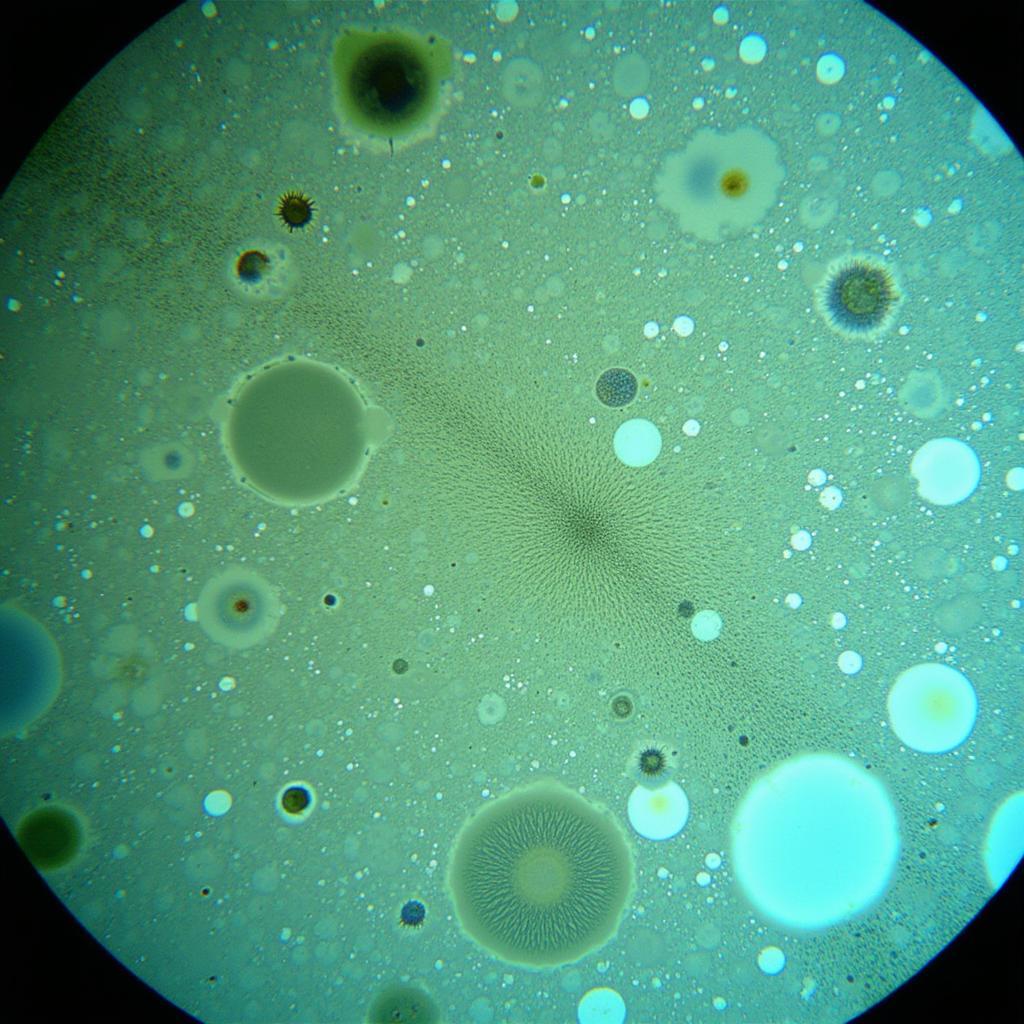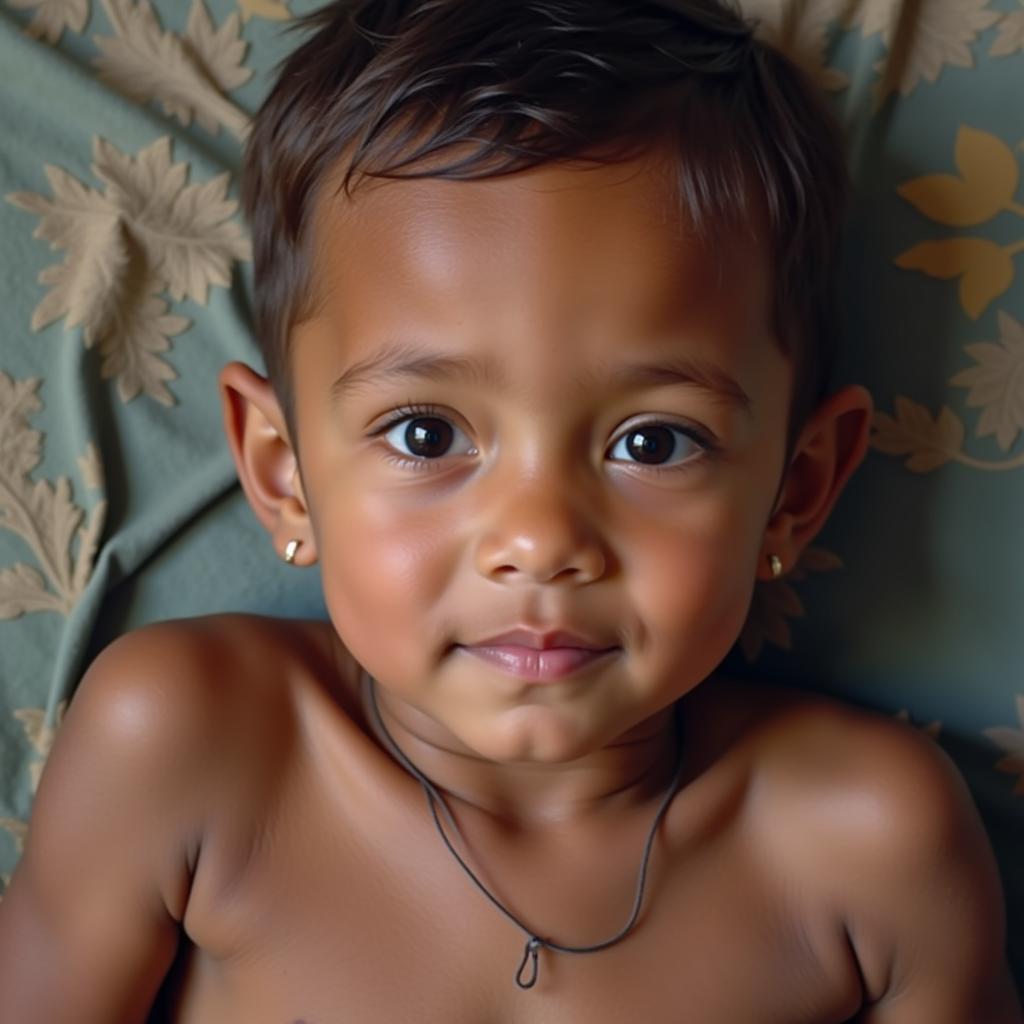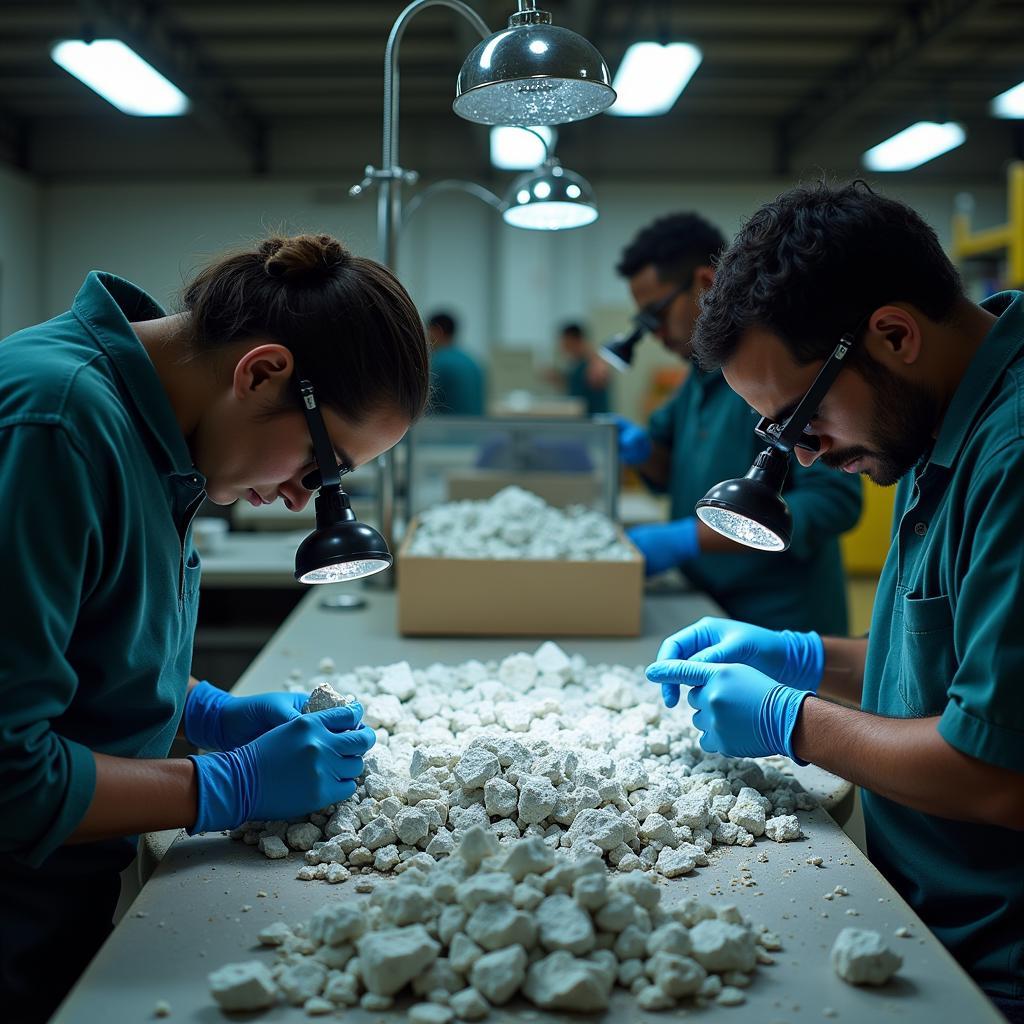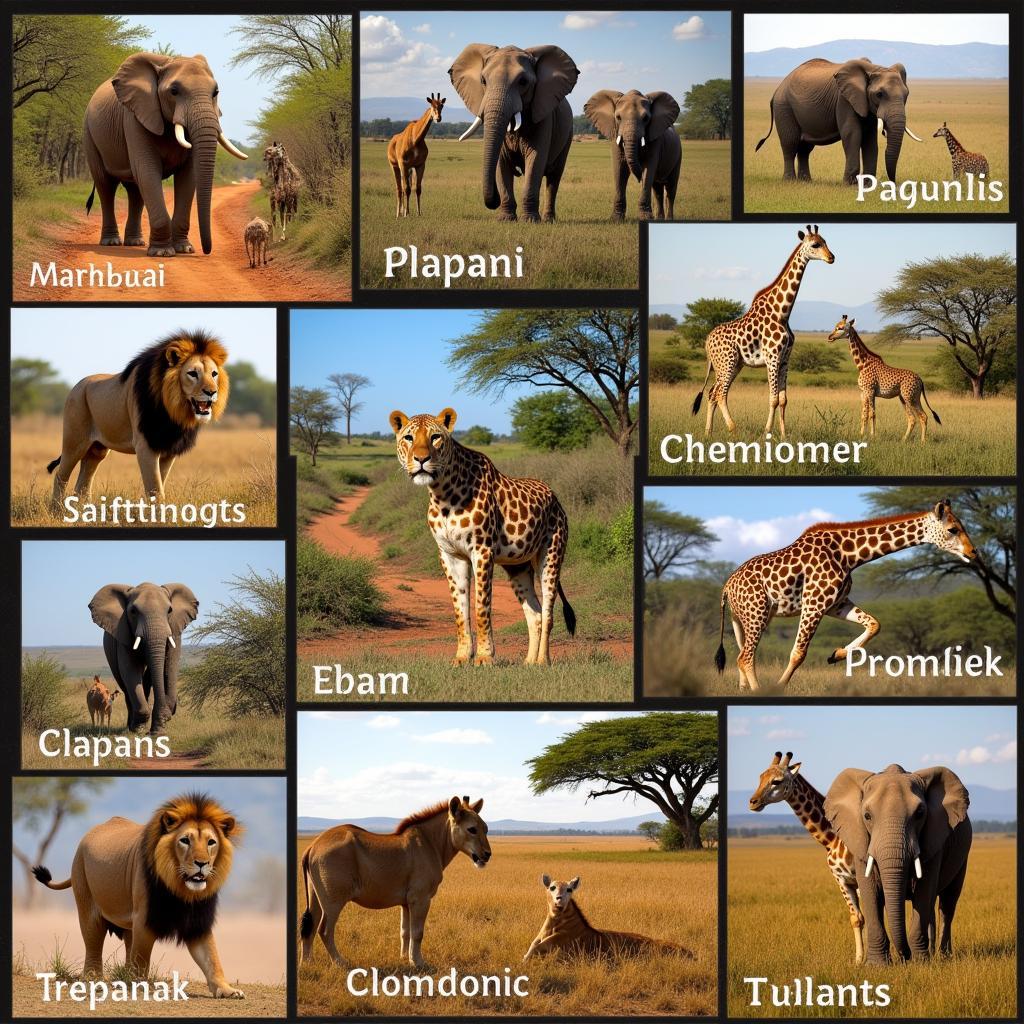African Cichlids Eating Live Fish: A Guide to Predator Tank Inhabitants
African Cichlids Eating Live Fish is a common topic for aquarium enthusiasts. While some cichlid species are herbivores, many are predatory and require a diet that includes live or frozen foods. Understanding the dietary needs of these fascinating fish is crucial for maintaining a healthy and thriving aquarium.
The Natural Diet of Predatory African Cichlids
In their native African lakes like Lake Tanganyika and Lake Malawi, predatory cichlids have evolved to hunt and consume smaller fish, invertebrates, and even insects. This carnivorous diet provides them with the essential nutrients they need for growth, color development, and overall well-being. Providing a similar diet in a home aquarium is essential for mimicking their natural environment and ensuring their long-term health. For example, some species, like the african buttikoferi, have specialized diets.
Providing a varied diet that mimics their natural food sources is key. This includes offering a mix of high-quality live and frozen foods. Some popular choices include feeder fish (like guppies or minnows), bloodworms, brine shrimp, and krill.
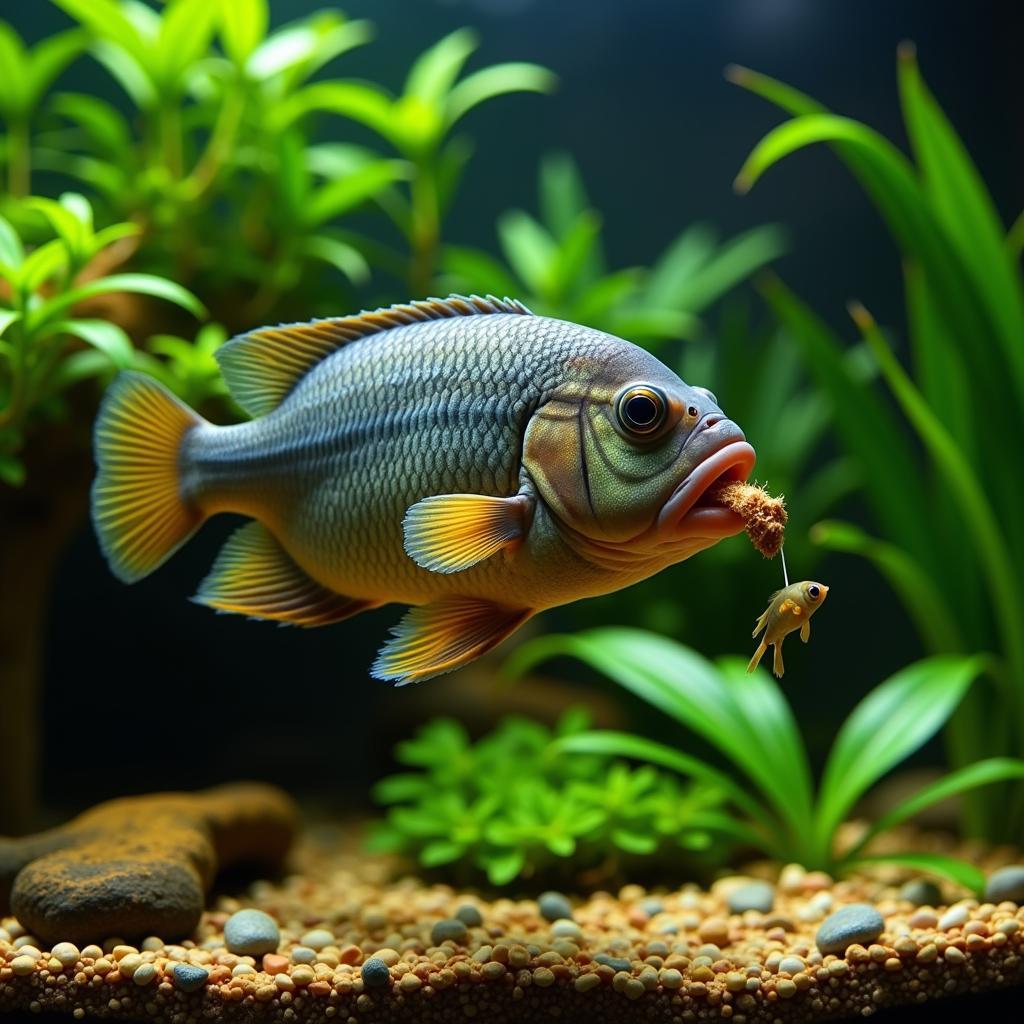 African Cichlid Hunting Live Fish
African Cichlid Hunting Live Fish
Choosing Appropriate Live Food for African Cichlids
While feeding live fish can be a stimulating experience for your cichlids, it’s crucial to select appropriate feeder fish. Avoid goldfish as they are high in fat and can lead to digestive issues. Opt for feeder fish that are nutritionally balanced and readily available from reputable sources. Additionally, quarantining feeder fish before introducing them to your main tank is essential to prevent the spread of diseases. Many aquarium hobbyists even breed their own feeder fish to ensure a clean and consistent food source for their african cichlid venustus.
What types of live food are suitable for African cichlids? Feeder fish like guppies, minnows, and mosquito fish, as well as invertebrates like bloodworms and brine shrimp are all good options.
The Ethics and Risks of Feeding Live Fish
Feeding live fish to your African cichlids raises ethical concerns for some aquarists. It’s important to consider the welfare of the feeder fish and ensure they are sourced responsibly. Using feeder fish that are already dead or dying is never acceptable. There are also risks associated with feeding live fish. Parasites and diseases can be introduced to your main tank through infected feeder fish, so careful selection and quarantine procedures are crucial. Learning about african cichlid breeding behavior can be helpful to understand their natural instincts.
Are there alternatives to feeding live fish? Yes, high-quality frozen foods, such as bloodworms, brine shrimp, and mysis shrimp, offer a nutritious and safe alternative to live food. Many cichlid keepers successfully maintain their fish on a diet primarily consisting of frozen and prepared foods. It’s important to remember that variety is key, even when utilizing frozen food.
Maintaining a Balanced Diet for Your African Cichlids
While predatory African cichlids may relish live fish, it’s important to remember that a balanced diet is crucial for their overall health. Supplementing live food with high-quality flakes, pellets, and vegetables will ensure they receive a complete range of nutrients. The specific dietary requirements vary depending on the species, so researching the specific needs of your african cichlids tanganyika or other species is important. For instance, some African cichlids require a more herbivorous diet, while others thrive on a diet rich in protein.
 A Balanced Diet for African Cichlids
A Balanced Diet for African Cichlids
Conclusion
African cichlids eating live fish is a natural part of their predatory behavior. While providing live food can be beneficial, it’s crucial to do so responsibly and ethically. Prioritizing the welfare of both your cichlids and the feeder fish, along with maintaining a balanced diet and proper aquarium hygiene, is key to ensuring a thriving and healthy aquatic environment.
FAQ
- How often should I feed my African cichlids live fish?
- What are the signs of overfeeding in African cichlids?
- Can I breed my own feeder fish?
- What should I do if my cichlid refuses to eat live food?
- Are there any specific nutritional supplements I should consider for my cichlids?
- What are the best tank mates for predatory African cichlids?
- How can I prevent the spread of diseases when feeding live fish?
Situations with frequent questions.
- My cichlid isn’t eating the live fish. This could be due to stress, illness, or improper water parameters. Check your water quality and ensure the feeder fish are appropriate for your cichlid species.
- My cichlid is chasing the other fish in the tank. Predatory cichlids can be territorial and aggressive. Ensure your tank is large enough and provides adequate hiding places for all inhabitants.
- The feeder fish are dying quickly in the tank. This could indicate poor water quality or that the feeder fish were already sick. Quarantine feeder fish before introducing them to the main tank.
Related topics:
- African catfish breeding
If you need any assistance please feel free to contact us: Phone Number: +255768904061, Email: [email protected] or Visit us at: Mbarali DC Mawindi, Kangaga, Tanzania. We have a 24/7 customer support team.

